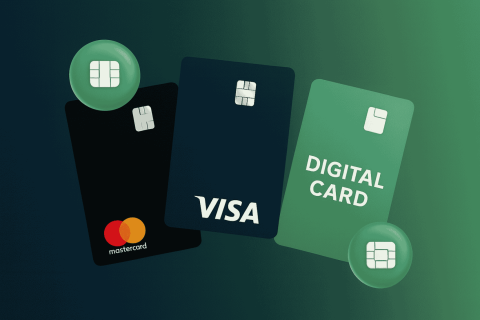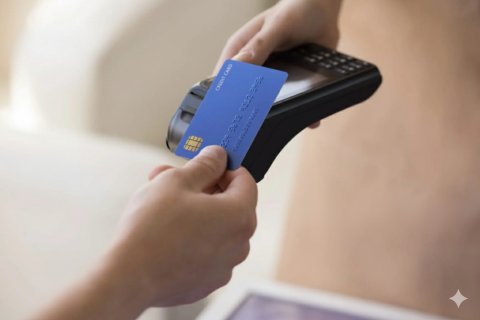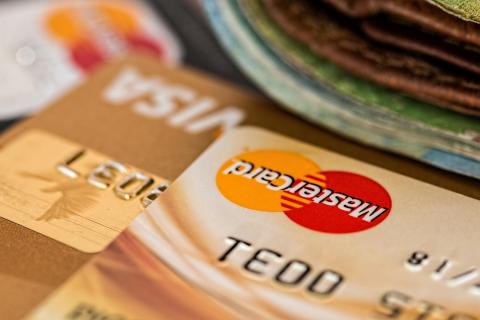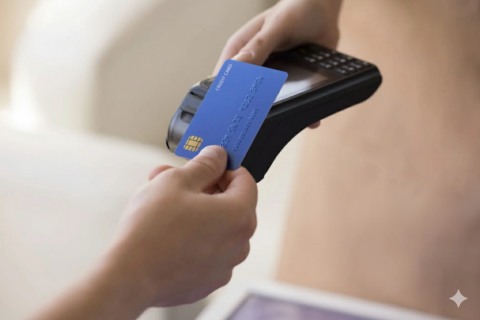How to Avoid Paying Interest on Credit Cards?

Latest news
How to Open an Inecobank Card: A Complete Guide to Visa, Mastercard, and Virtual Cards
“1 Click” Online Loan from Inecobank: How to Apply in Just a Few Minutes Without Visiting a Branch
How Russian Citizens Can Open a Bank Card in Armenia in 2025: Is Remote Opening Possible?
What Types of Visa and Mastercard Cards Can You Get in Armenia and How Do They Differ?
How to Get a Gold-Backed Loan on the Best Terms in Armenia
Which Armenian Bank Offers the Best Card for Russian Citizens?
Skyline in Yerevan: Armenia’s First “City Within a City”
The Best Euro Deposits in Armenia in Autumn 2025
Top Deposits in USD in Armenia in Autumn 2025
Top Deposits in AMD in Armenia in Autumn 2025
Author
Saty Avagyan
Source
AFMTopic
Debit Cards, Credit Cards
Prepared in partnership with Earlyone. (Google Play, iOs)
Getting a loan from the bank and not paying a single dram in interest – sounds like magic, right? With credit cards, it's absolutely real. The main thing is to understand how the grace period works.
What is a Grace Period and Why Is It Important?
A grace period is a set number of days during which you can use borrowed money without incurring interest, provided you repay it on time. It typically lasts from 15 to 60 days, depending on the bank.
Things to note:
- The grace period may start from the first day of the billing cycle, not from the moment of purchase.
- It does not apply to cash withdrawals or transfers, only to cashless payments.
- Making only the minimum payment means the debt remains, and interest will be charged.
How to Pay Correctly to Stay Within the Grace Period
To avoid paying interest, you need to repay the entire debt amount before the grace period ends. Partial repayment or only paying the minimum amount will nullify the grace period – and interest will be charged on the entire outstanding balance, starting from the purchase date.
Tips:
- Set up autopay for the full debt repayment if you have sufficient funds to cover it.
- Use calendar reminders.
- Keep track of the start dates for your billing and payment periods – these are two different dates.
Why You Should Use Two Cards: Debit and Credit
Experts at AFM recommend using a debit card for everyday purchases and a credit card only for large, pre-planned expenses. This allows you to better control your spending and avoid falling into a debt trap.
Additionally, using separate cards helps you not lose track of your grace period. You'll know exactly which purchase was made and when you need to repay the debt. If you use a credit card with a grace period for many daily transactions, there's a higher chance of missing the repayment date, and the bank will charge interest.
Mistakes That Prevent You From Using a Credit Card Interest-Free
- Cash withdrawals: Interest accrues from day one, even during the grace period.
- Even one day's delay: You lose the grace period for the entire debt.
- Small, uncontrolled purchases: Every small transaction extends and complicates calculations.
FAQ
Question: Can I pay only part of the debt and avoid paying interest to keep the grace period?
Answer: No. To avoid paying interest, you must repay the entire debt before the end of the grace period.
Question: Does the grace period apply to transfers between cards?
Answer: Generally, no. Such transactions are usually treated like cash withdrawals.
Question: How can I find out the end date of my grace period?
Answer: It's typically indicated in your bank's app or on your monthly statement. The bank usually sends a notification as well.
Question: Can I pay for utility services with a credit card without interest?
Answer: Yes, if it's a cashless payment within the grace period and your bank doesn't exclude such transactions from the program.
What to Do to Avoid Paying Interest on Credit Cards?
If you strictly follow the rules, the grace period transforms a credit card into a convenient tool for making purchases when you don't have enough of your own money, but you know you'll be able to repay the debt soon. For example, buying home appliances without waiting for your salary.
The main thing is not to forget that "free money" only works with proper discipline and attentiveness.
Smartly distribute your spending between your debit and credit cards, set up autopayments, monitor your statements, and avoid withdrawing cash from your credit card. To choose a card with the longest grace period and minimal service fees, use the AFM service: it will help you compare bank offers and find a truly beneficial option.

How to Open an Inecobank Card: A Complete Guide to Visa, Mastercard, and Virtual Cards

What Types of Visa and Mastercard Cards Can You Get in Armenia and How Do They Differ?

Which Armenian Bank Offers the Best Card for Russian Citizens?

Profitable Promotions in Armenian Banks in December 2025






